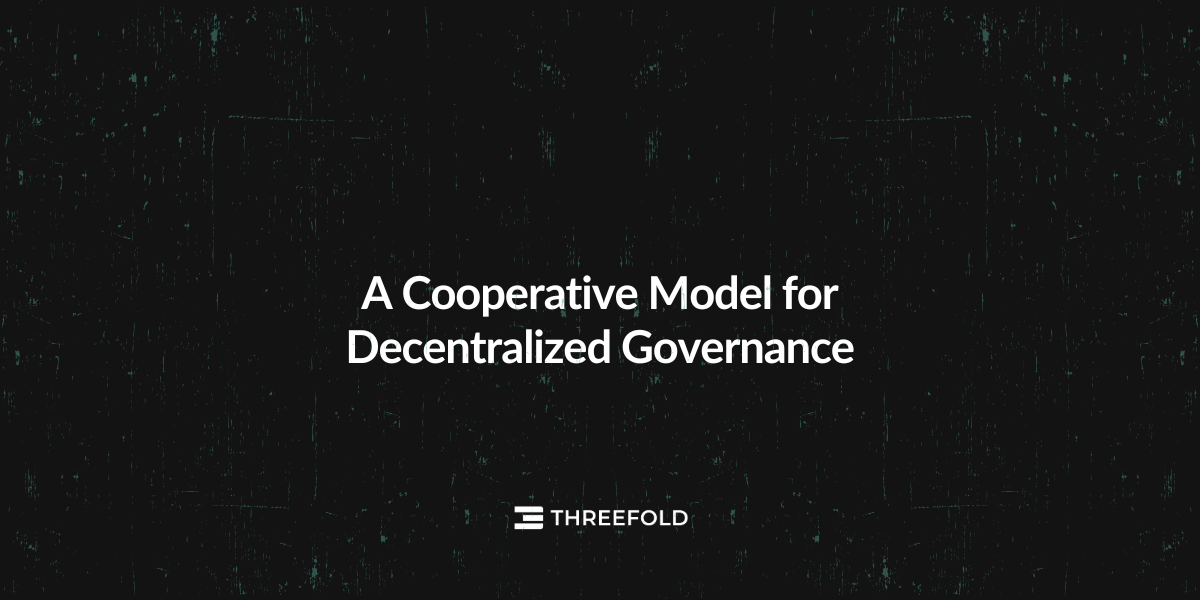A Cooperative Model for Decentralized Governance
Cooperatives represent a tried and tested form of collective organization, emphasizing democratic governance and equitable distribution of benefits among members.

In the next phase of ThreeFold, we are focused on utilization and commercialization. With this comes a requirement for our project to establish reliable and trusted systems that allow anyone to enter the ecosystem with confidence.
One effective mechanism gaining traction for decentralized governance is the cooperative model. Cooperatives represent a tried and tested form of collective organization, emphasizing democratic governance and equitable distribution of benefits among members.
🔗So, what exactly is a cooperative?
The International Cooperative Alliance defines a cooperative as an autonomous association of persons united voluntarily to meet their common economic, social, and cultural needs and aspirations through a jointly-owned and democratically controlled enterprise.
Cooperatives operate under a set of shared principles—voluntary and open membership, democratic member control, economic participation by members, autonomy and independence, education, training, and information, cooperation among cooperatives, and concern for the community. These principles underpin the resilience and effectiveness of cooperatives as governance models.
🔗The ThreeFold Cooperative
In the future, ThreeFold will establish a 100% owned subsidiary of the Cooperative within a chosen jurisdiction to open the doors to innovative mechanisms. Through this subsidiary, the creation of Farming Pools becomes feasible, providing a controlled environment for token transactions aligned with defined governance protocols unique to each Farming Pool.
One crucial aspect is the inclusivity within this cooperative framework. Every farmer contributing resources and every buyer purchasing IT capacity from the network becomes an integral part of this cooperative, fostering a sense of ownership and shared responsibility.
This cooperative structure revolutionizes the way participants interact within a decentralized network. It ensures that governance mechanisms are not only defined but also upheld by all stakeholders, aligning actions with the collective vision.
Embracing a cooperative model introduces a well-established framework for decentralized governance. By leveraging its proven principles and structures, it fosters inclusivity, democratic decision-making, and shared ownership—a recipe for fostering trust, equity, and sustainability within decentralized systems.
As we navigate the complex landscape of decentralized technologies, cooperatives stand as a beacon of collaborative and democratic governance, offering a robust foundation for a truly decentralized future.

